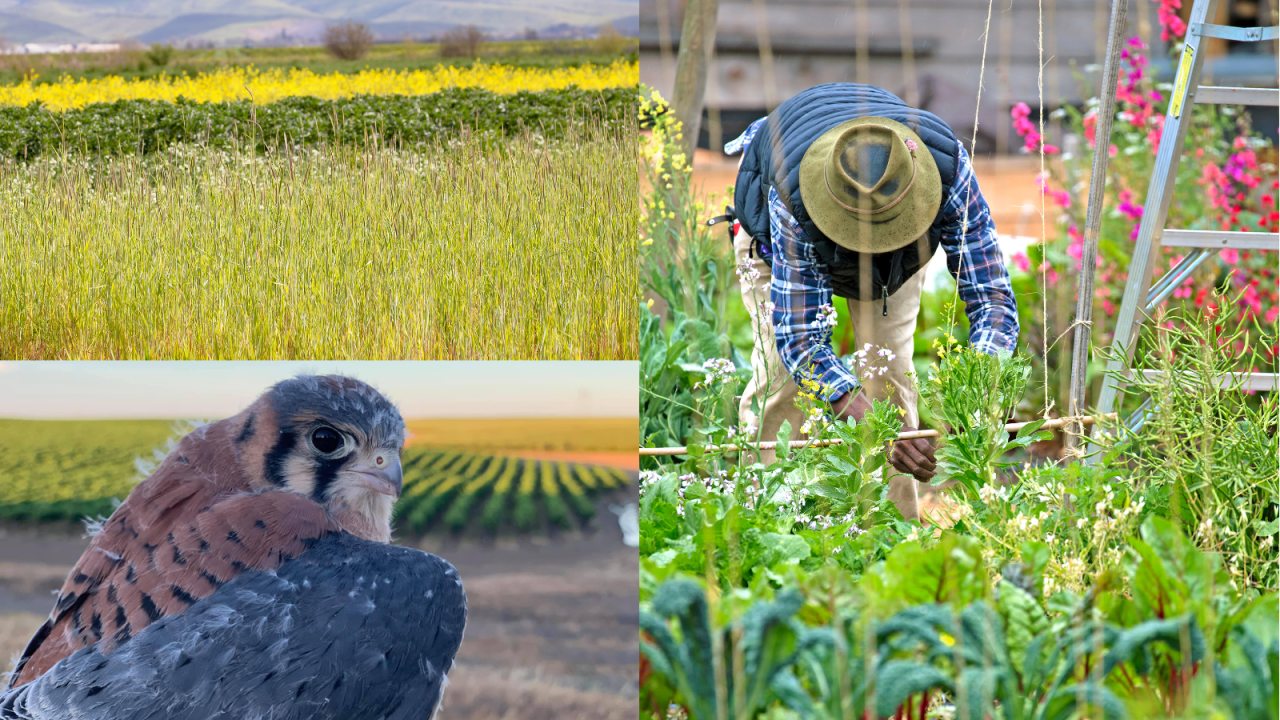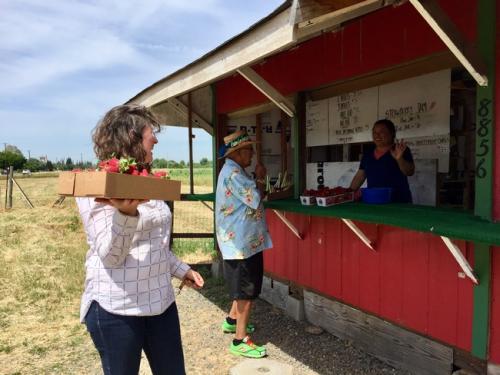
UC SAREP funds 8 sustainable farming and food projects
Projects will support socially disadvantaged farmers, increase urban access to healthy food and more
The UC Sustainable Agriculture Research & Education Program (SAREP) is pleased to announce the recipients of the Sustainable Agriculture and Food Systems 2024-25 Small Grants Program. Funds from this grant program are provided for planning, research, and education projects that support the development of sustainable community food systems and environmentally-sound and economically viable farming enterprises.
Of the 33 eligible applications received, eight applicants were selected to receive approximately $80,000 in total funding to support their work. Individual grants are limited to $10,000. “The Small Grants Program is an important part of our mission,” said Ruth Dahlquist-Willard, interim director of UC SAREP. “By facilitating these grants, SAREP is able to support ANR in engaging a wide range of food systems stakeholders, outcomes show that a small financial investment can have a large impact in improving the lives of Californians.”
The eight recipients of this year’s grants are:
Planning
Building Capacity and Resiliency Among Networks of Socially Disadvantaged California Farmers
Fresh Approach will establish a network of pooled learning and technical support that will aid emerging food aggregation businesses in accessing sustainable market channels, including emergency food distribution. As part of the project, they will enhance an interactive GIS mapping tool of value chains to streamline market opportunities for socially disadvantaged farmers and aggregators. (Project lead: Andy Ollove, Fresh Approach)
Sustainable Urban Resident Food Gardens Expansion Planning Project
Growing Hope Gardens will systematize the process of outreach, discovery, design, planning and implementation in creating new urban resident food gardens. The project will document GHG’s garden development process into a training and implementation manual to more effectively duplicate food garden programs in more low-income urban communities. (Project lead: Carolyn Day, Growing Hope Gardens)
Research
Evaluating Best Management Practices for Cover Crops to Minimize Nitrogen Losses in California’s Salinas Valley
This project will quantify the effectiveness of cover cropping at different planting times and termination dates to scavenge excess nitrogen in the soil and reduce nitrate leaching into in a Salinas vegetable cropping system. The results will inform Ag Order 4.0 for cover crop credits and help stakeholders in the Salinas Valley better understand crop management for efficient nutrient cycling. (Project lead: Scott Fendorf, Stanford University)
Implications of American Kestrel Diet, Dispersal, and Migration on Pest Control in Northern California Farming Systems
Investigators will study how the diet, post-breeding dispersal, and migration of nesting kestrels influences biological pest control on Northern California farms. The project will generate management recommendations on the utility of biological pest control from kestrels in IPM and sustainable agriculture programs across California. (Project lead: Breanna Martinico, UC Agriculture and Natural Resources, UC Cooperative Extension)
Education and Outreach
EAT! Community Farms Market Access and Promotion Project
This project helps socially disadvantaged and indigenous farmers in Riverside County create pathways for realizing economic return. EAT! will provide mentoring for marketing strategy development, connect farmers to buyers, promote the farmers market so it’s more profitable for farmers, and provide a cooperative farm stand in the city of Norco for farmers to sell produce directly to consumers. (Project lead: Patrick Mitchell, Ecological Agricultural Training Cultural Center [EAT!])
Cultivating Cooperative Education, Stewardship, and Connection at the Agroecology Commons Cooperative Incubator Farm
Agroecology Commons aims to address challenges faced by young, first-generation, BIPOC, Queer, and Femme farmers at the Agroecology Commons Cooperative Incubator Farm in the Bay Area. The project will focus on education and outreach, providing technical assistance and training in regenerative agriculture practices such as soil health, pest management, and crop diversification to socially disadvantaged farmers. (Project lead: Jeneba Kilgore, Agroecology Commons)

Signage and Mural Refurbishment for Southeast Asian Farmers to Improve Direct-to-Consumer
This project will build new, long-lasting farm signs for Southeast Asian farmers growing diversified vegetables and berries in the Sacramento region. Improving the appeal and durability of farm signs will increase the profitability of the farm stands as these resource-limited farmers rely on direct-to-consumer marketing strategies to promote their businesses. (Project lead: Margaret Lloyd, UC Agriculture and Natural Resources, UC Cooperative Extension)
Community Nutrition Security & Education Program
Farm Discovery at Live Earth will increase access to organic produce for individuals and families experiencing food and nutrition insecurity in Santa Cruz and Monterey Bay. This will be accomplished through farming, outdoor education, and nutrition education programs focusing on regenerative agricultural practices to connect youth and families to their regional agricultural and ecological systems. (Project Lead: Jessica Ridgeway, Farm Discovery at Live Earth)
The UC SAREP Small Grants Program has a BIG impact! Help us fund more projects that support sustainable community food systems and environmentally-sound, economically viable farming enterprises. To support this program, please donate here. Choose SAREP Small Grants Program for the designation.
